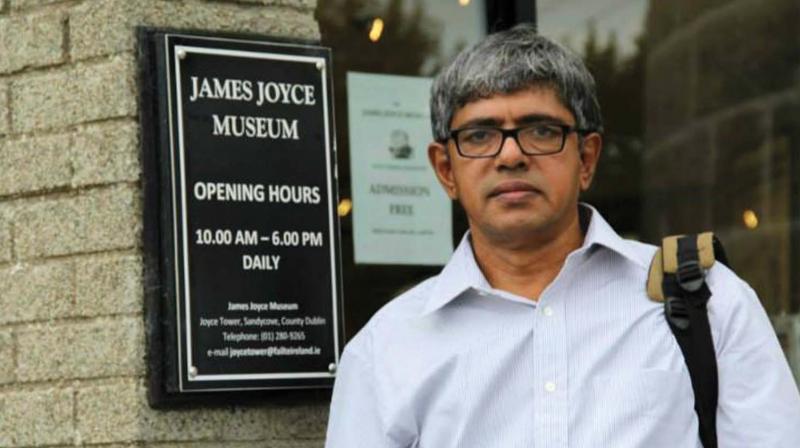Malayalam: More than a palindrome
Poet Balachandran Chullikkad's recent comments have raised questions on the status of Malayalam.

It was only recently that Balachandran Chullikkad, the firebrand poet, in a press conference, appealed that his poems be taken off from school/college curriculum. The poet was irked by the poor academic quality, which results in the young breed of students and teachers who lack proper knowledge of the language, in both oral and written forms. Love him or hate him, but the poet has kicked up a storm, with people arguing about the real status of Malayalam, which was declared a classical language in 2013. And everyone agrees on one fact. That Malayalam – the word which, ironically, is among the first-taught English palindromes, has more to it. Writer N.S. Madhavan sees it as an extension of the fall of Malayalam language.
“The decline started 40-60 years ago. There have been no deep studies or research in the language. Even at the Malayalam University, we are focusing on job-oriented courses, unlike Oxford or Cambridge. The only institution of ours that played a stellar role in academic quality of Malayalam is the erstwhile University of Travancore, which, upon becoming University of Kerala lost its sheen,” he says. The writer also feels that Kerala is the only state which neglected its language as “it didn’t fetch people any jobs”. “I don’t blame anyone for that. But in the process of constant neglect, Malayalam got devalued,” he says.
Terming Chullikkad’s act a ‘metaphorical resistance’, Dr P.M. Girish, head of the department of Malayalam, University of Madras, says, “His statement is a reminder of George Orwell’s 1946 essay Politics and English Language, in which he criticises the ugly and inaccurate written language of his time and examines the connection between political orthodoxies and the debasement of language. Like Orwell, who is considered the wintry conscience of a generation, Chullikkad is the conscience of our generation. He has the responsibility to make such a statement, which is in fact, a call for introspection.”
Young writer V.M. Devadas finds Chullikkad’s an emotional response and not in the literal sense. “What he might have pointed out is that language has failed as a tool for academics or for conveying an idea properly. I too agree with his stance that people in academic area should be scholarly in the literal sense; they should be knowledgeable enough to make corrections,” says Devadas, adding that when it comes to the layman, things are different. “Being a language that has the influence of languages like Sanskrit, Arabic, Portuguese and English, there’s no point in talking about Malayalam as a pure language because the language through goes through various stages of changes. The Malayalam of ancient era and that of social media era are poles apart,” he says.
Devadas feels that the quality of Malayalam research has taken a hit. “Academicians themselves would admit that the research quality is on a decline. A doctorate has become a milestone for promotion and increment. With grants and paid leave for research, many teachers go for it but not many of them do justice to their work by bringing out a worthy result,” he says. A person hailing from academic background, Girish, however, feels that research in Malayalam needs diversification. “I won’t say that original researches are not happening because there are a huge community of Kumaranasan researchers and linguistic researchers. But attempts like these help academicians and educationists to be vigilant about what actually lacks in research area,” he adds.
As Devadas puts it, “Academicians, bureaucrats and educationists should discuss and come up with a proper policy to address such issues.” Girish too lists out a few solutions. He opines, “All universities should publish in their websites the details of the research subjects. Students should inculcate in themselves to come up with original subjects by scanning through each and every previous research works related to their subject. Lack of stylebooks and software — both to check errors and plagiarism — are also a hindrance in the path of Malayalam research. Addressing these would bring about a great positive change.”

